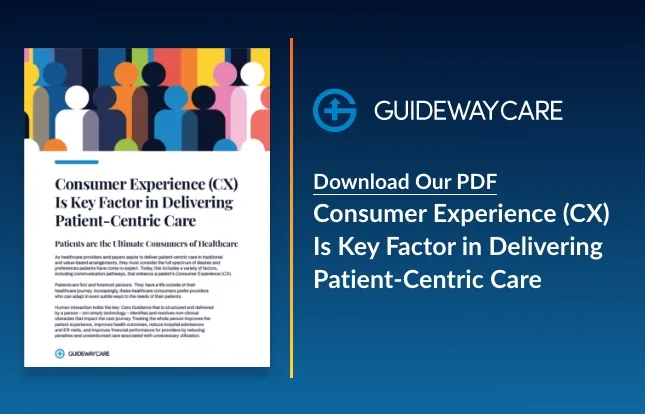Top Types of Patient Advocacy Services Provided by Navigators

Patient advocacy services provided by navigators help patients navigate the complexities of the healthcare system. These services include clinical support, such as guiding patients through treatment plans, and non-clinical assistance, like addressing financial and logistical challenges. This blog will outline the key types of patient advocacy services provided by navigators, ensuring a clear understanding of their crucial roles in patient care.
Key Takeaways
- Clinical patient advocacy services, including Oncology Nurse Navigators and Social Work Navigators, provide essential support for patients navigating complex healthcare systems, focusing on both medical and emotional needs.
- Non-clinical patient advocacy services, such as Care Coordination and Health Education, address logistical barriers and empower patients through knowledge, ultimately improving access to care and patient satisfaction.
- Specialized patient advocacy services, including Financial Navigators and Population-Specific Navigators, cater to unique patient needs, ensuring equitable healthcare access and reducing disparities among underserved populations.
Clinical Patient Advocacy Services

Patient navigators serve as crucial advocates within the healthcare system, dedicating themselves to offering direct support and patient advocacy. These individuals are often seasoned healthcare professionals, including oncology nurses and social workers, who leverage their specialized knowledge to help patients navigate through complex treatment processes. Their role is essential in ensuring equitable access to care, facilitating clear communication between patients and providers, and providing all-encompassing support.
Distinct roles such as Oncology Nurse Navigators and Social Work Navigators cater to particular aspects of clinical advocacy based on patient needs. Oncology Nurse Navigators specialize in cancer care management by delivering emotional backing along with practical guidance during treatment, while Social Work Navigators concentrate on addressing a patient’s social and mental well-being concerns, aiding them in making informed decisions regarding their health journey.
Oncology Nurse Navigators
Registered nurses who specialize in oncology care, known as Oncology Nurse Navigators, serve as an essential resource for individuals confronting the daunting challenges of cancer treatment. They are trained specifically to support these patients by clarifying available treatments, organizing healthcare services, and providing ongoing emotional support throughout their battle with cancer.
As pivotal components of the healthcare team dedicated to cancer care, these nurse navigators facilitate a clear understanding among patients regarding various treatment options and their respective consequences. By acting as a conduit between the medical team and the patient, they ensure that personal preferences and needs are at the forefront of decision-making processes. This collaboration significantly contributes to improved health outcomes and heightened satisfaction among those receiving cancer treatment.
Social Work Navigators
Navigators in Social Work offer a distinct angle on patient advocacy, tackling the psychological and social obstacles that frequently arise alongside severe medical conditions. They assist patients in comprehending their healthcare choices and making knowledgeable choices, delivering assistance that extends beyond mere medical care.
Their role is crucial for fulfilling the emotional and social requirements of patients and advocating for comprehensive treatment, which leads to improved health outcomes overall.
Non-Clinical Patient Advocacy Services

Advocacy services for patients that do not involve clinical care play an essential role by emphasizing support with logistics and eliminating obstacles to accessing health care. These advocates, adept at managing concerns related to finances, transportation, and communication blockages, make certain that individuals receive necessary medical attention without facing undue impediments.
Notable among these non-clinical offerings are Care Coordination and Health Education. Care coordination focuses on the efficient organization of different facets of a patient’s treatment within the healthcare system. Conversely, education provides patients with critical information that enables them to make knowledgeable choices regarding their well-being.
Care Coordination
Care coordination, when executed effectively, can greatly enhance patient contentment and health outcomes. Patient navigators are vital to this effort as they bridge the communication gap between patients, their families, and healthcare providers. They assist by clarifying treatment paths for patients and supporting logistics like organizing appointments, arranging transportation needs, or obtaining financial help.
Specifically, it refers to organizations such as Guideway Care’s advocates who tackle non-medical obstacles, including facilitating access to transportation services and monetary assistance. These actions are crucial in elevating care accessibility while minimizing healthcare disparities. By acting as a consistent liaison across various aspects of the medical system, patient navigators improve care coordination, leading not only to more expedient screenings and treatments but also enhancing overall patient satisfaction levels significantly.
Health Education
Patient advocacy is deeply rooted in the provision of health education. By providing individuals with customized educational materials, navigators empower them to comprehend their medical conditions and the various treatment possibilities available to them. Such knowledge fosters a culture of informed decision-making, which is vital for patients who wish to take charge of their own healthcare journey.
At Guideway Care, there’s an emphasis on educating patients about both their rights and the array of treatments they may pursue, thus equipping them with the necessary tools to efficiently traverse through the healthcare system, establishing connections between patients and healthcare providers, navigators are instrumental in enhancing access to care a, and consequently improving patient health outcomes across the board.
Specialized Patient Advocacy Services

Specialized patient advocacy services cater to specific needs and demographics, offering tailored support to ensure comprehensive care. These services include Financial Navigators, Clinical Trials Navigators, and Population-Specific Navigators, each addressing unique aspects of patient care.
Financial Navigators help patients manage medical expenses and navigate insurance complexities, Clinical Trials Navigators facilitate access to cutting-edge treatments, and Population-Specific Navigators focus on underserved groups, ensuring they receive the care they need.
Financial Navigators
Financial navigators are essential in helping patients comprehend their insurance benefits, controlling expenses not covered by insurance, and investigating avenues for financial assistance. By organizing payment schedules and identifying ways to reduce costs, they offer crucial support, making certain that economic obstacles do not obstruct the receipt of required healthcare services.
Clinical Trials Navigators
Navigators for clinical trials play a crucial role in linking patients to pertinent clinical trials, thus providing them the opportunity to access cutting-edge treatments that may otherwise be unavailable. By tackling patient worries, aiding with transportation logistics, cs, and handling insurance matters, these navigators significantly enhance patient enrollment in clinical trials.
Population-Specific Navigators
Navigators who specialize in serving specific populations concentrate on overcoming distinct obstacles that underserved communities encounter, including difficulties with language and cultural variances. They offer customized assistance to guarantee these groups access to critical healthcare services, which contributes to the diminishment of healthcare disparities and the advancement of health equity.
Role of Private Patient Advocates

Private patient advocates operate independently from the conventional healthcare system, providing tailored assistance to individuals and their loved ones. Patients or their family members commonly employ these healthcare advocacy consultants directly for guidance through the intricacies of medical care while safeguarding patients’ rights. In this realm of private patient advocacy, a private patient advocate can be instrumental.
Employing private patient advocates brings several advantages, es such as increased quality in healthcare provision, elevated patient outcomes, and heightened satisfaction with care received. With custom advice and support offered by these advocates, there is a marked improvement in individual experiences within the healthcare journey.
Scope and Services
Patient advocates provide an array of customized services, including medical bill negotiation and arranging for in-home care. They help patients find housing, financial aid, and community resources to guarantee sustained assistance during their healthcare journey. These private patient advocates are dedicated to supporting individuals through every stage of their health-related experiences.
Employment Settings
Patient advocates may work independently as freelancers, providing customized assistance to individuals, or they can be employed by organizations that offer advocacy services, thus extending their influence and availability.
Benefits of Private Advocacy
Dedicated to meeting the unique needs of each client, private patient advocates provide tailored attention and adaptable services that greatly improve the overall experience for patients. They offer essential support and direction, empowering clients to efficiently maneuver through the complexities of the healthcare system.
Patient Advocacy Certification and Training

Acquiring certification and undergoing training is crucial for creating proficient patient advocates who are adept at steering through intricate healthcare systems. Programs aimed at certifying patient advocacy impart knowledge and conduct assessments on vital topics that include the intricacies of healthcare systems, the entitlements of patients, and methods of effective communication.
By engaging in ongoing professional development via continuing education programs and participating in workshops, both patient advocates and professional health advocates stay abreast of current methodologies and norms. This enhances their ability to provide better services while also working towards minimizing disparities within the realm of public health.
Certification Programs
Programs like the BCPA certification are instrumental in bolstering the capabilities and understanding of patient advocates. They assess vital proficiencies necessary for proficient patient advocacy, confirming that these advocates have adequate preparation to assist patients in navigating intricate care scenarios. This evaluation aligns with standards set by the Patient Advocate Certification Board, reinforcing professional excellence in patient advocacy.
Professional Development
Continuous learning and skill enhancement are crucial for patient advocates to maintain up-to-date abilities and enhance the quality of support services they offer. Through educational programs, professional workshops, and associations with professional bodies, patient advocates can develop their knowledge base and adopt successful practices in the realm of patient advocacy.
Impact of Patient Advocacy on Health Outcomes
Patient advocacy plays a crucial role in enhancing health outcomes and boosting patient satisfaction. Through customized guidance and support, advocates for patients facilitate improved access to healthcare services, making certain that individuals receive the care they require.
The diminishment of healthcare disparities and the elevation of patient satisfaction stand out as two central effects of effective patient advocacy. By tackling obstacles to care and augmenting communication, these advocates markedly enrich the entire experience within the healthcare system.
Reducing Healthcare Disparities
Connecting patients with necessary resources to overcome care barriers and patient advocacy is essential in mitigating healthcare disparities. By addressing the social determinants of health, Guideway Care has effectively ensured that marginalized populations have equitable access to care.
Enhancing Patient Satisfaction
Navigators play a crucial role in elevating patient contentment by offering emotional support, fostering better communication between patients and healthcare providers, and facilitating prompt access to medical services. These actions are instrumental in strengthening confidence in the healthcare system, which is vital for enhancing adherence to treatment protocols and improving outcomes for patients overall.
Wrapping Up
In essence, the role of patient advocates as navigators is a fundamental element in contemporary healthcare. They offer vital support and direction to patients, assisting them in managing the intricacies of intricate health systems. The array of services they provide ranges from practical assistance on both clinical and non-clinical levels to more tailored private advocacy efforts—all aimed at enhancing health outcomes and elevating patient satisfaction.
These professionals extend beyond merely tackling logistical and fiscal obstacles. They also lend significant emotional backing that helps patients feel confident and well-informed during their medical treatment. At Guideway Care, we demonstrate the transformative power of comprehensive patient advocacy and patient navigation, highlighting the critical importance of addressing social determinants of health to ensure equitable healthcare for all individuals in need. Contact us to learn more about how our team of experts can support and empower you through your healthcare journey.
Frequently Asked Questions
What types of patient advocacy services are available?
Services for patient advocacy offer a variety of support mechanisms, such as assistance from oncology nurse navigators and social work professionals. They also include care coordination, health education, aid with finances, guidance through clinical trials, and private advocacy.
The purpose of these services is to provide effective help for patients as they maneuver through their healthcare experiences.
How do oncology nurse navigators support cancer patients?
Nurse navigators in oncology provide cancer patients with emotional support, help coordinate their care, and assist in understanding treatment choices. This ensures clear communication between the healthcare team and the patients they are treating.
What is the role of financial navigators in patient advocacy?
Patient advocates, in the form of financial navigators, are pivotal as they aid patients by clarifying their insurance benefits, handling personal expense management, and locating potential funding opportunities to overcome obstacles blocking access to required medical care.
This assistance enables patients to concentrate on their recovery and health while mitigating the stress associated with monetary burdens.
What are the benefits of hiring a private patient advocate?
Engaging the services of a private patient advocate offers bespoke assistance and support that is specifically designed to improve patient outcomes and increase overall satisfaction with the healthcare journey.
This enhancement can substantially elevate your experience within the healthcare system.
Contact Us Today To Learn How We Can Help
"*" indicates required fields




